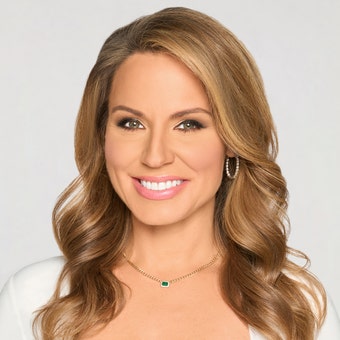DeSantis: Reopening Florida was 'proper approach' to battling COVID
'Ingraham Angle' host slams White House chief medical adviser for dispensing COVID guidance 'not driven by science'
Throughout the pandemic, media and technology companies have impulsively discredited some narratives while prematurely promoting others. By some strange coincidence, these decisions almost uniformly align with left-wing policy objectives.
Last week, YouTube removed a video of a recent roundtable discussion between Florida Gov. Ron DeSantis and several doctors and epidemiologists known for their anti-lockdown opinions.
The panel convened to discuss Florida's COVID-19 response, with DeSantis and others criticizing the overall U.S. response while discussing the unintended consequences that have resulted from prolonged lockdowns, mask-wearing and school closures.
When the Wall Street Journal asked about the removal, Youtube provided an example of a comment by Dr. Jay Battacharya, a Stanford University professor of medicine and research associate at the National Bureau of Economic Research, who said masking for children is "developmentally inappropriate."
Youtube further gave the reason for the video’s removal as, "because it included content that contradicts the consensus of local and global health authorities regarding the efficacy of masks to prevent the spread of COVID-19."
CLICK HERE TO GET THE OPINION NEWSLETTER
But even that statement is untrue. Put simply, there is very little local or global consensus on many facets of the pandemic, particularly children wearing masks. Without diving too deep into the minutia, while the Centers for Disease Control and Prevention may recommend mask-wearing in children over 2, the World Health Organization (WHO) does not.
The WHO says "children aged 5 years and under should not be required to wear masks" and that, for children 6-11 years of age, the "potential impact of wearing a mask on learning and psychosocial development, in consultation with teachers, parents/caregivers and/or medical providers" should be considered before having them wear masks.
More from Opinion
So, while comments arguing against children wearing masks may go against Dr. Anthony Fauci and other scientific purists with the singular mission of eradicating a virus, it does not go against other equally reputable sources that emphasize kids wearing face masks may disrupt their development.
Reasonable experts can and do disagree. It is this discord that fuels trial and error experimentation and discovery. Science, by its very nature, is rarely settled.
In the race for information about the novel virus, technology and media companies have jumped ahead to help shape narratives around partisan policies despite the science changing by the day. Big Tech is collecting massive amounts of data while stifling free speech and removing content that goes against popular opinion. In Saphier’s book "Panic Attack," she details the many ways Big Tech has censored contrarian opinions about the pandemic, leading to more discord and skepticism than the views themselves.
It should not be acceptable for YouTube and Facebook to ban content that conflicts with a certain party’s policy enactments.
Despite ending lockdowns back in September, Florida’s per capita case and death counts are better than nearly half of all states. The state's vaccine rollout has been faster than many, too. In a public health crisis such as we are still in, it is essential to have transparent discussions on responses and outcomes to help lay a better path for the future. What worked? What didn’t?
But YouTube doesn't want the public hearing about it. The panel of professionals, which included a former White House coronavirus task force member, a Harvard professor of medicine, and professors of epidemiology from Stanford and Oxford, discussed data that suggests lockdowns had a lesser effect in controlling the virus, therefore supporting Florida’s methods.
The discussion seemingly confronted the inconvenient truth that prolonging some restrictions and policy during the pandemic may have been unnecessary, resulting in unintended consequences.
It should not be acceptable for YouTube and Facebook to ban content that conflicts with a certain party’s policy enactments. While vaccine hesitancy remains a barrier in the vaccination efforts, suppressing contrarian views on Twitter and elsewhere only adds to the growing skepticism. Banning discussion, misinformation or not, does not change the reality that legitimate debate on the subjects exist.
The suppression of scientific dispute is not only wrong, it's harmful. It sends a message that medical experts cannot be trusted. The consequences of fomenting that belief may help reach short-term goals, but they could be catastrophic in the long run, as laid out in Chaffetz’s new book "They Never Let a Crisis Go To Waste."
CLICK HERE TO GET THE FOX NEWS APP
The rights to privacy and free speech are being repressed in the name of public health and safety with the potential to linger long after the current pandemic is over.
There is no party of science. Whether we like the conclusions or not, whether we feel comfortable debating the ambiguity or not, the outcomes speak the truth. Suppression efforts do more to discredit and undermine science than conservatism. And that's dangerous.
CLICK HERE TO READ MORE FROM DR. NICOLE SAPHIER
CLICK HERE TO READ MORE FROM JASON CHAFFETZ
Jason Chaffetz is a Fox News contributor who was the chairman of the U.S. House Oversight Committee when he served as a Republican representative from Utah. He is the author of "They Never Let a Crisis Go to Waste: The Truth About Disaster Liberalism."











































